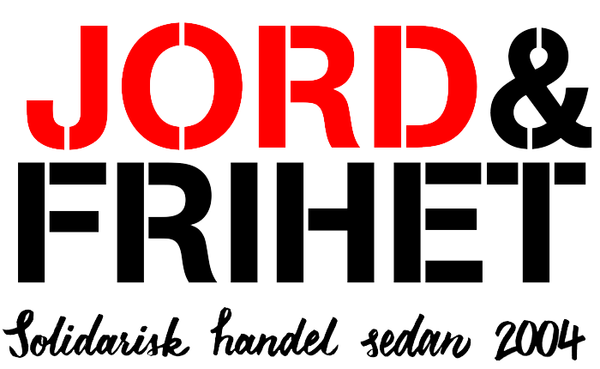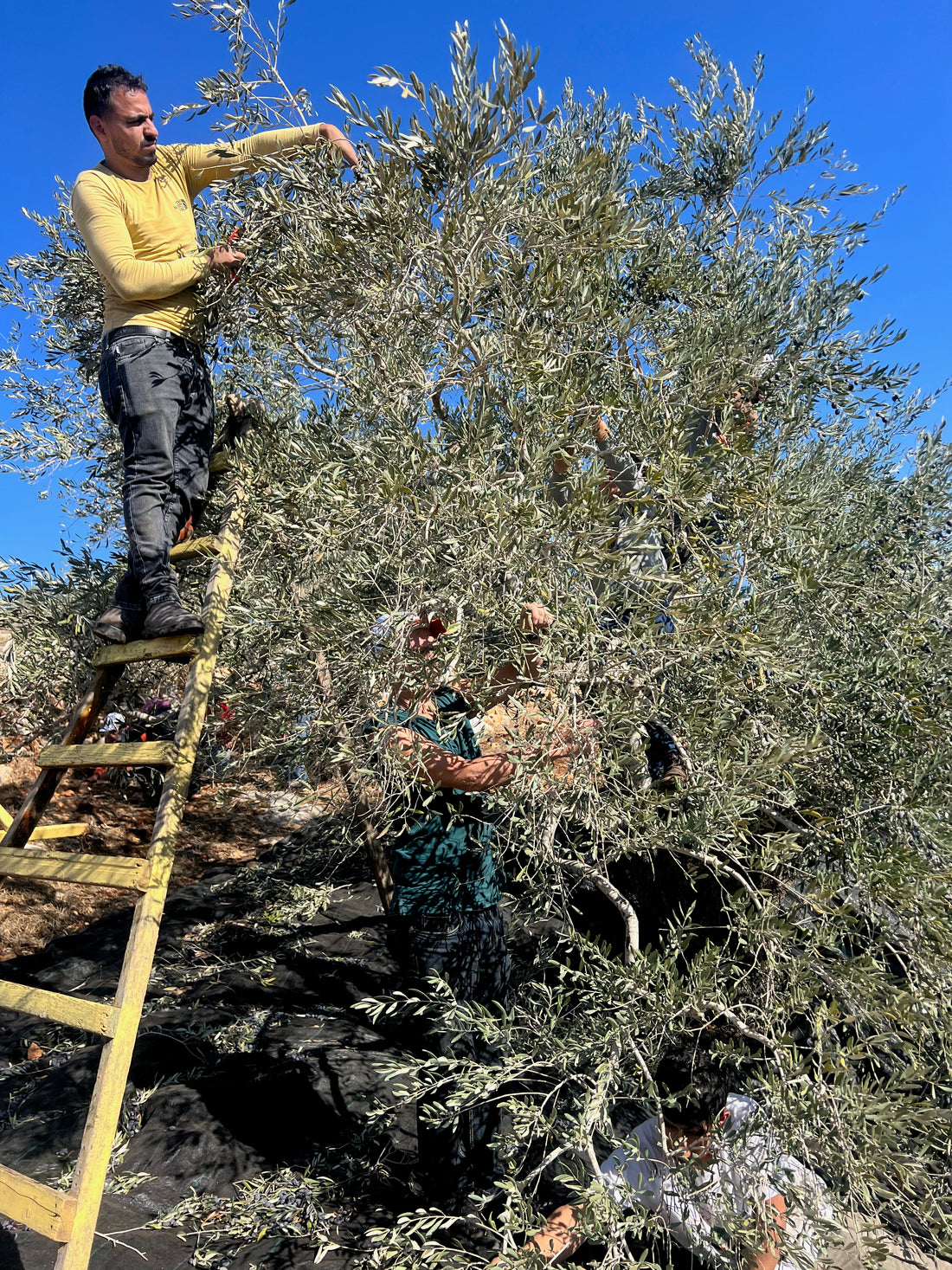In Palestine, the olive harvest is almost over. And despite settler attacks with burned olive groves, abuse and harassment, there are bright spots in the darkness: This year's olive harvest looks to be big, and the farmers in the West Bank are finding new ways to both improve their harvests and take care of the land.

- In 2002 we started an olive oil cooperative here in the village, says Baker Hamad, chairman of Farkah olive oil cooperative. Then we were nine farmers, today we are eighteen!
We are sitting in the yard outside Baker's house in the village of Farkah, in Salfit on the West Bank. The evening is warm and black. The French volunteer olive pickers who live in some of Baker's guest rooms have disappeared inside to write reports home, and the women and children of Baker's large family have retreated.
Before we started the cooperative, we often had a lot of oil, but we got a low price for it, says Baker. We sold it for six to seven shekels per kilo. Then we started thinking about how we could change the situation.
- We talked to PARC (Palestinian Agricultural Relief Committees), and PFU (Palestinian Farmers Union) and they said we could help ourselves through the cooperative. That we could educate ourselves and create better conditions for ourselves. They also said they could help us if we wanted to go down that road. That's when we started learning about organic farming.
PARC, one of Palestine's largest non-governmental organizations, has since its founding in 1983 worked to develop Palestinian agriculture and support farmers. Among other things, they have encouraged the formation of cooperatives and developed work with organic farming. Now, says Baker, for example, the olives are no longer stored in plastic bags, because the olives are heated by the plastic, which deteriorates the quality of the oil. And the olives are mostly pressed the same day they are harvested, in the press purchased by the cooperative in Farkah together with two other cooperatives in the region. In 2007, the cooperative in Farkah became organically certified. Something Baker Hamad is very proud of.
- With the formation of the cooperative, our lives changed, he says. We stopped using chemicals and we learned to take care of our olive trees and the lands around them.
Baker says that other crops in the village have also started to be grown organically, as a result of the training the farmers in the cooperative have received.

- We eat better food now in general, he says. We get good oil ourselves and we can, through the company PARC created for export, sell good oil to solidarity organizations in a lot of different countries! In addition, I have seen that we got more even harvests.
In addition to being chairman of the olive oil cooperative, Baker Hamad is also the coordinator of some of the groups of volunteers who come to Palestine every year to participate in the olive harvest. And he is one of the initiators of – and the zealots of – the agroecological farming project established in Farkah in 2014.
In the afternoon the next day, Baker proudly shows us around the demonstration project Farkah agro ecological demonstration farm. A project financed by, among others, a Swiss olive oil campaign and part of a worldwide network of eco-villages. On a hillside on the outskirts of Farkah, villagers and volunteers have built walls, growing beds, compost and well-designed irrigation systems. A traditional oven for baking bread – a taboo – has been bricked up, and simple bio-toilets have been built. At the bottom of the area, rows of painted car tires have been placed for growing potatoes. Partly, it's recycling the tires so we don't have to burn them, says Baker. And partly it is good for growing potatoes because it gets hot in there.
At a beautiful little vantage point—“a place of meditation and reflection,” as Baker puts it—he talks about his dream that is about to come true: A thriving permaculture facility with vegetables and herbs, fruit trees, flowers, beekeeping, storage of vegetables and sleeping places for guests.
- International guests can come here, and farmers can come here to learn new things, says Baker, looking out over the village on the other side of the valley. Farmers can often be conservative and traditional; they do as they have always done. Should they change their mind, it may not be enough to verbally explain things to them, they must be able to see that it works in practice as well. They will be able to do that at this location!
Per Erixon
Facts Salfit:
• Salfit is a city and district in the West Bank, north of Jerusalem.
• In the district of Salfit there are 18 Palestinian villages and towns and 23 settler colonies.
• The West Bank's largest settlement, Ariel, with 30,000 inhabitants, is located in Salfit. A colony that continues to expand, including new industrial projects under construction.
• The main occupation of the Palestinians in Salfit is agriculture, but the area has lost a lot of land due to the construction and extension of the apartheid wall and to new settler colonies.

